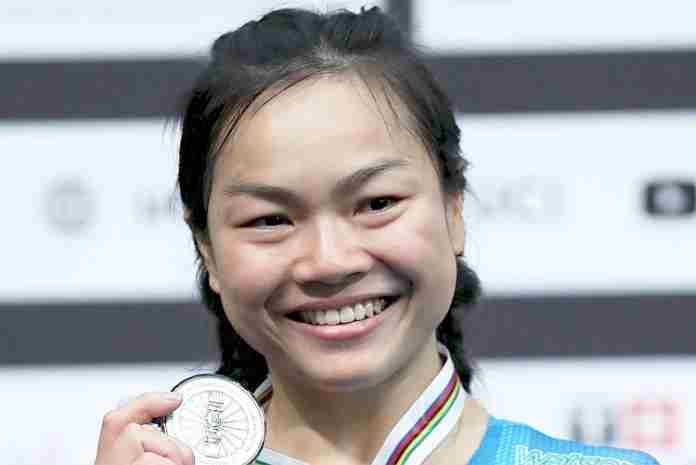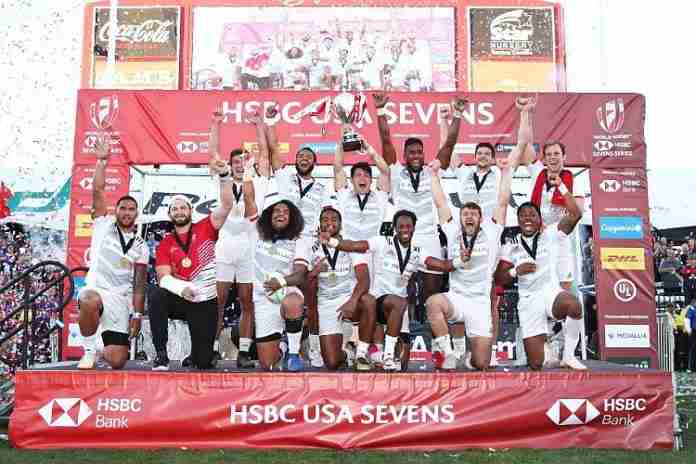 The 21 February announcement that Skateboarding, Sport Climbing, Surfing and Breakdancing were the requested additions to the program of the 2024 Olympic Games by the Paris organizing committee left sports such as Baseball, Softball, Billiards, Chess, Karate and Squash out of the Games.
The 21 February announcement that Skateboarding, Sport Climbing, Surfing and Breakdancing were the requested additions to the program of the 2024 Olympic Games by the Paris organizing committee left sports such as Baseball, Softball, Billiards, Chess, Karate and Squash out of the Games.
And they are not happy about it.
The World Karate Federation has launched a digital campaign to request that Karate be included anyway. “Now it is the moment to show the world how strong we are,” stated wkf President Antonio Espinos (ESP). “Now it is the time to demonstrate our unity and to take action against a decision which we deem unfair since we have been excluded even before having the opportunity to show the added value that we can bring to the Olympic Games.”
Others have extended congratulations to the sports chosen, but promised to work for future inclusion. The World Baseball Softball Confederation (WSBC) released a statement noting that “We will continue working hand in hand with all stakeholders in the lead up to our spectacular Olympic comeback in Tokyo 2020. We expect sold out crowds, an electric atmosphere and a clear demonstration of what our strong sport and its global fanbase can bring to the Games throughout the competitions.”
Further, Riccardo Fraccari (ITA), the WBSC President, met with IOC President Thomas Bach (GER) in Lausanne (SUI) to discuss the future of his sports and notably said afterwards that “The IOC will also consider our new urban and youth-focused discipline Baseball5 for inclusion in the upcoming Youth Olympic Games.” That was a clever move, seeing how Breakdancing is being elevated from the YOG to the Games after some head-spinning at the 2018 Youth Olympic Games in Buenos Aries.
But Fraccari also noted that the very low number of athletes allowed for these added sports makes it very difficult for any teams sports to be added.
And that is where these “un-selected” sports can work together to help reform the Olympic program. Simply stated, the program of the Olympic and Winter Games is too big, there are too many athletes competing, too many accompanying officials and too many venues. This is being most keenly felt in the Winter Games situation at present, as five cities rejected a bid for the 2026 Games and only Milan-Cortina (ITA) and Stockholm (SWE) are left, neither of which has financial support from their national governments.
The IOC’s mantra has been to make each Games better suited to the cities bidding for the Games and its Agenda 2020 reforms have implemented this concept. The building program for Paris 2024 is limited and almost no construction is needed for the 2028 Games in Los Angeles.
Which provides an opening for those sports feeling unloved by the process by which a few sports are added to the program:
Give prospective host cities more of an opportunity to shape their Games by allowing them to decide more of the sports to be included in their Games.
It could work quite simply: The Olympic Charter does not require any specific number of sports to be included in the Games, so there is no magic to any quantity of sports. For Tokyo in 2020, there are 28 sports plus five added by the Tokyo organizers for a total of 33.
We could do with less.
Starting with the 28, do we really need all of these sports? “Need” is the key word here, so the answer is no.
If the concept of Agenda 2020 is to really mold a Games around what a city of region has to offer, why not have the IOC specify a number of mandatory sports and let the bidding cities offer up the rest of the program?
If we decide on the number of sports to be 27, for example, why not have the IOC designate 18 sports and leave the bidders to offer their choice of nine sports for their bid?
Sure, this will cause chaos, anger, anxiety and opportunity. That’s what sports does, for each and every participant, so why not at the bidding level?
In fact, this idea of choice is exactly what Agenda 2020 is meant to do, and could actually be deepened further to disciplines and events. But for the sake of simplicity, let’s stick to sports, meaning one or more events governed by an individual International Federation. And the concept of moving sports on and off the program has become normalized over the past few years and is a staple of major sports leagues in Europe, where promotion and relegation between divisions is a regular feature of each season. So why not with the Olympic Games and the World Games, which is set up to have such sports shuffled in and out of its quadrennial program.
Now, which sports would constitute the 18 mandated by the IOC? In fact, the federations themselves have done most of the work already. For the purpose of distributing a share of the IOC’s television rights fees given as a block grant to the Association of Summer Olympic International Federations (ASOIF), the federations themselves have agreed on a five-tier system of payments:
● Tier 1: Athletics, Gymnastics, Swimming
● Tier 2: Basketball, Cycling, Football, Tennis, Volleyball
● Tier 3: Archery, Badminton, Boxing, Judo, Rowing, Shooting, Table Tennis, Weightlifting
● Tier 4: Canoeing, Equestrian, fencing, Handball, Hockey, Sailing, Taekwondo, Triathlon, Wrestling
● Tier 5: Modern Pentathlon, Golf, Rugby
(Golf and Rugby were included in the fifth tier because the sports were new in 2016.)
The first three tiers comprise 16 sports, although the continued presence of boxing and weightlifting for future Games are not assured, according to the IOC. So the IOC could pick the top three tiers and add 2-4 sports from the fourth or fifth tiers based on its own criteria.
That would leave bidding cities with a choice of two dozen sports – all recognized by the IOC at some level – from which to pick nine to include in their version of the Games. This will give bidding cities an opportunity to use the facilities they have more wisely and to shape the size and depth of the sports to be competed in in their idea of an Olympic Games in their area.
Isn’t this what Agenda 2020 is really supposed to do: give cities the possibility to design a Games which fits it best? The discussions and options which would come from such reforms will create new concepts for sports and help bring them forward faster than any symposium or conference.
The IOC is considering the Paris 2024 program this year and is expected to approve the final list of sports and events by the end of the year. With the sting of losing out on Paris 2024, there should be multiple federations who will find a new format for being included in the Games most welcome.
For Baseball and Softball, the future is bright with Los Angeles 2028 on the horizon and excellent, world-class stadia ready to be used. But for 2032?
It will take time for the IOC and multiple federations whose sports are already in the Games to warm up to this concept. But the discussions could start this May at the ASOIF General Assembly in Gold Coast, Australia; after all, the 2032 Games will be awarded in 2025 and it will be here before you know it.
Rich Perelman
Editor

























